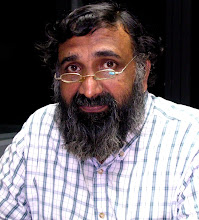Knowledge should be Free
This is an editorial I wrote for the March 2003 issue of the magazine Science India that I used to be associated with. I think what I wrote then is equally valid today also. But first, here is what I wrote:
The Columbia Tragedy
The month of February started with a tragedy in the sky, a tragedy that could have been averted, like most others, if human knowledge had been more complete, or perhaps, if some individuals had taken more care. Science India pays homage to the seven space travellers who lost their lives as the space shuttle disintegrated high in the sky. We can add thier names to the seven others who died when another space shuttle, Challenger, blew up on the launchpad, or to thirteen others who died in various accidents involving spacecrafts. Let us remember the hundreds or thousands of others, known and unknown, who had their lives prematurely terminated in our quest for the kind of technology that makes it possible for us to go beyond the atmosphere. And a similar number of people who helped build up the scientific knowledge base for the development of technology. And, indirectly, the millions upon millions who helped all of us (scientists) lead a life devoted to science and technology by providing us the basic amenities of life. Let this remind us that knowledge is a product of social activity, contributed by one and all, and, as such, everyone is heir to all knowledge. Let this also remind us that knowledge is to be used for social good, and not for personal advancement. If the lives of the seven astronauts can remind us of this fact, they would have achieved far more than what they went to space for.
-------
Experiments conducted in Columbia were intended to study about the benefits of zero gravity in manufacturing certain materials. The knowledge gained from these experiments would have become the property of the companies that sponsored the study. The companies would certainly have paid NASA for the experiments. Does that really compensate for the knowledge they acquired? Can they ever compensate for the lives of the astronauts? I write about this tragedy because the news spread the world over. But how many such accidents would have taken away lives without any of us knowing about them? How many people had to give up their lives in the pursuit of knowledge at least some of which has helped companies to build successful businesses? Can these companies compensate for these lives? I believe that knowledge should not be proprieterised, whatever the law of the land may say. I believe it is unethical and immoral to do so.
Sunday, September 30, 2007
Subscribe to:
Posts (Atom)
